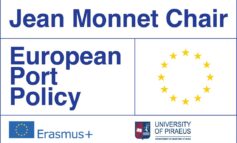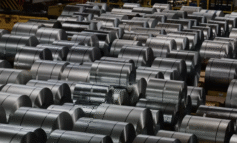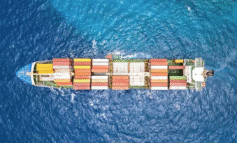“COVID-19 and maritime transport: impact and responses” is a report produced under Phase I of the maritime supply chain component of the United Nations Development Account (UNDA) project on “Transport and trade connectivity in the age of pandemics: Contactless, seamless and collaborative UN solutions”.
About the Report
The report was prepared by Porteconomics co-director Thanos Pallis under the overall guidance of Shamika N. Sirimanne, Director of the Division on Technology and Logistics of UNCTAD. It benefited from substantive contributions by Jan Hoffmann, Frida Youssef, Hassiba Benamara, and Ahmad Ayoub, Trade Logistics Branch, Division on Technology and Logistics.
Beyond the extensive published information, the section on responses and adjustments introduced by ports has benefited from insights generated as part of the discussions and documents produced by the COVID-19 Task Force of the International Association of Ports and Harbors (IAPH). Furthermore, it builds on the findings reported in the various issues of the publication: Notteboom T. and Pallis A.A. (2020). IAPH-WPSP COVID-19 Port Economic Impact Barometer.
Introduction
Maritime transport underpins global supply chain linkages and economic interdependency with shipping and ports estimated to handle over 80 per cent of global merchandise trade by volume and more than 70 per cent by value. As a result, when disruptive factors such as pandemics occur, the sector works as a transmission channel that sends shockwaves across supply chains and regions.
Strengthening the capacity of countries to anticipate and recover from disruptions affecting their maritime supply chain is crucial. This requires a good understanding of how the COVID-19 affected the sector, including the challenges faced and the solutions that had been adopted. Therefore, and building on its broad mandate in the field of transport and trade facilitation, UNCTAD carried out a preliminary assessment of the immediate impacts of the COVID-19 disruption on the maritime supply chain and trade over the first half of 2020.
The assessment was articulated around the following issues:
- Impacts of the COVID-19 on the maritime supply chain and challenges faced.
- Response measures introduced by relevant stakeholders.
- Lessons learned and implications for the maritime supply chain of the future.
Against this background, Chapters 1 and 2 of the report describe the immediate impacts of the pandemic on maritime trade flows, ship calls, and liner shipping connectivity in the first half of 2020. Chapter 3 highlights relevant responses and adjustments made at the port level as well as by other stakeholders across the maritime supply chain to cope with the disruption and maintain business continuity, while at the same time, protecting workers and ensuring timely delivery of essential goods during the crisis.
Download the report here – enjoy its reading: ➡️ COVID-19 and maritime transport: impact and responses
The assessment has generated some key findings and identified some lessons and good practices that could be leveraged to develop guidance and tools with a view to greater maritime supply chain resilience and preparedness in the face of shocks and disruptions.












